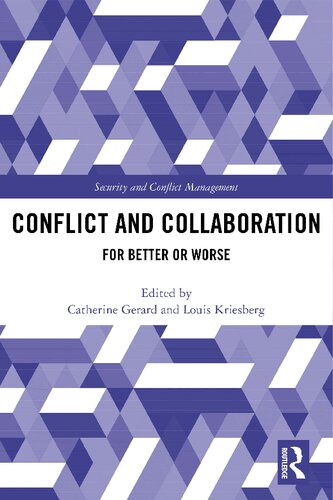

Most ebook files are in PDF format, so you can easily read them using various software such as Foxit Reader or directly on the Google Chrome browser.
Some ebook files are released by publishers in other formats such as .awz, .mobi, .epub, .fb2, etc. You may need to install specific software to read these formats on mobile/PC, such as Calibre.
Please read the tutorial at this link: https://ebookbell.com/faq
We offer FREE conversion to the popular formats you request; however, this may take some time. Therefore, right after payment, please email us, and we will try to provide the service as quickly as possible.
For some exceptional file formats or broken links (if any), please refrain from opening any disputes. Instead, email us first, and we will try to assist within a maximum of 6 hours.
EbookBell Team

4.3
48 reviewsIn this volume, scholars from different disciplines join together to examine the overlapping domains of conflict and collaboration studies.
It examines the relationships between ideas and practices in the fields of conflict resolution and collaboration from multiple disciplinary perspectives. The central theme is that conflict and collaboration can be good, bad, or even benign, depending on a number of factors. These include the role of power, design of the process itself, skill level and intent of the actors, social contexts, and world views. The book demonstrates that various blends of conflict and collaboration can be more or less constructively effective. It discusses specific cases, analytical methods, and interventions, and emphasizes both developing propositions and reflecting on specific cases and contexts. The book concludes with specific policy recommendations for many sets of actors―those in peacebuilding, social movements, governments, and communities―plus students of conflict studies.
This book will be of much interest to students, scholars, and practitioners of peace and conflict studies, public administration, sociology, and political science.